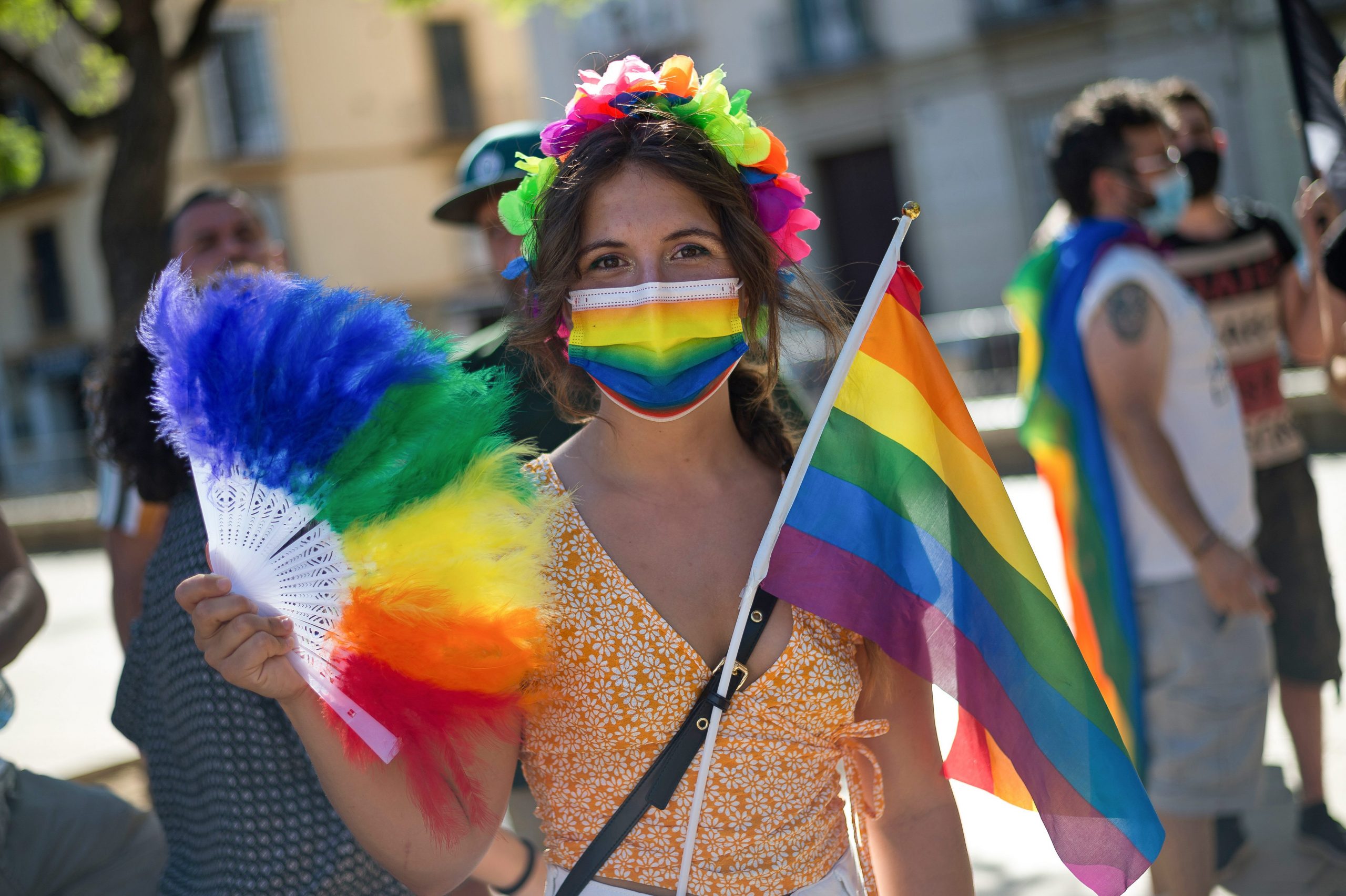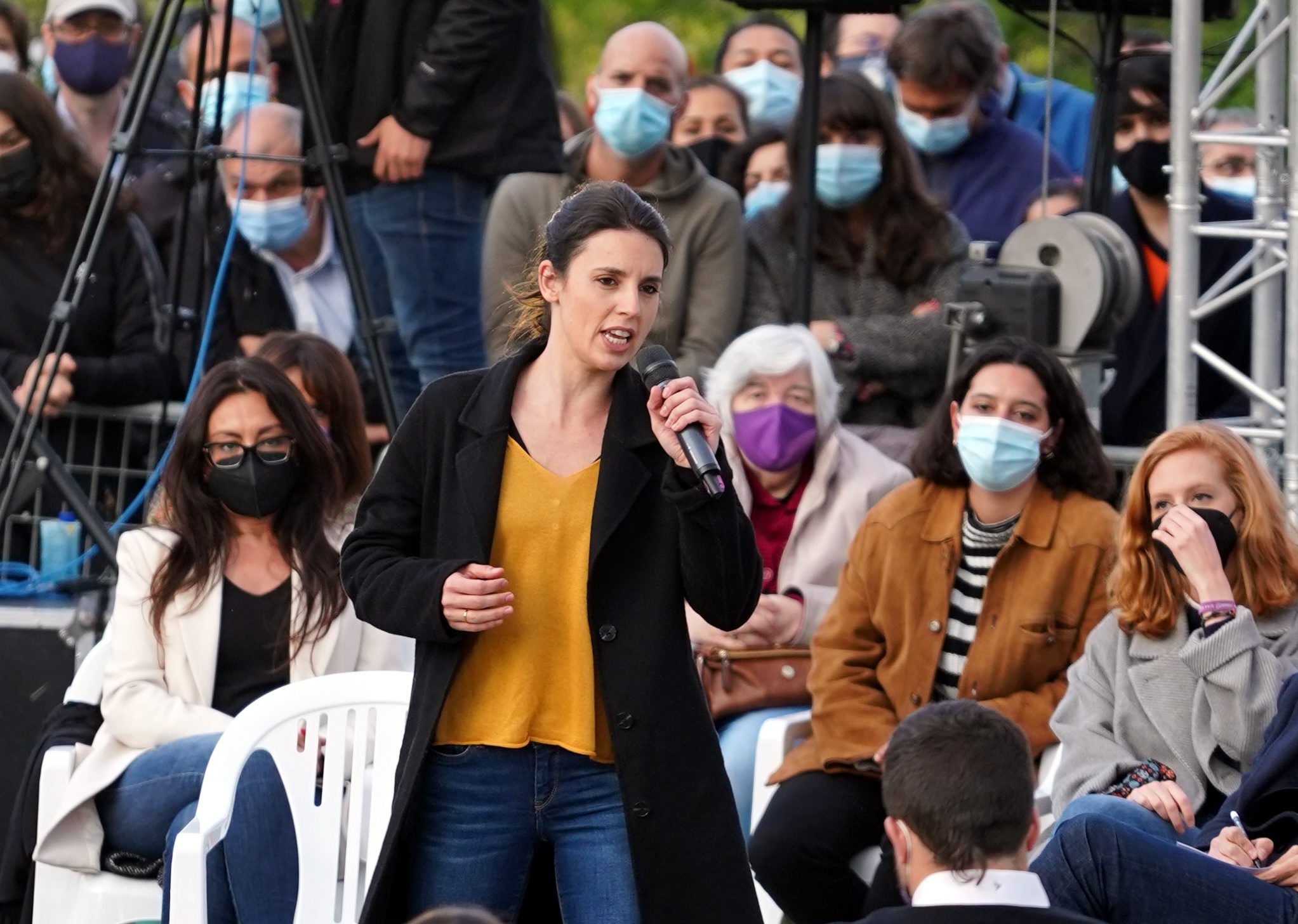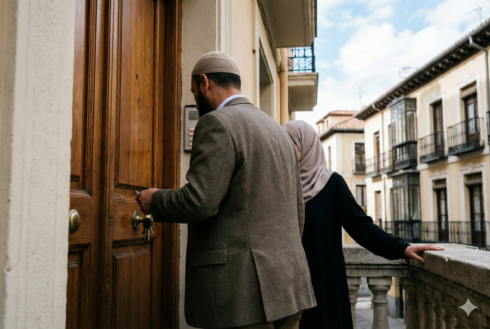YESTERDAY’S (Monday June 28) Gay Pride march in Valencia drew thousands of people in a festive demonstration that demanded more rights for transgender people.
“Trans rights are human rights” was the main slogan chanted by the colourful throng that snaked through the streets of the city centre, from Alameda to Xativa.
A lorry accompanied the procession with loudspeakers denouncing ‘the discrimination, harassment, sexist violence and social exclusion’ faced by members of the collective on a daily basis.
Participants at all times wore masks and obeyed COVID safety measures, although social distancing was obviously impossible.

The march was timed to coincide with the approval today (Tuesday June 29) of the final draft of the so-called ‘Trans Law’ at the Spanish Council of Ministers, which will effectively make it easier for transgender people to change their identity with the authorities without requiring medical reports, among other major updates.
Today’s presentation of the new legislation, which groups together a general LGTBI+ law and another one specific to trans people, comes after being stalled for months within the Spanish executive due to differences of opinion between its main proponents, vice-president Carmen Calvo (PSOE) and Equality Minister Irene Montero (Podemos).
The law has also sparked heated debates within feminism, as different sectors of the movement clash over certain key points.

Either way, the general consensus is that the ‘Trans Law’ – full name Law for the real and effective equality of trans people and to guarantee the rights of LGTBI people – is a success for Montero’s department and for the LGTBI+ collective, who worked closely with the government to draw up the final document.
Spain now joins a reduced number of European countries to officially pass legislation in this area, which includes Norway, Malta, Ireland, Denmark and Luxembourg.
READ MORE:
- #Orgullo: How Gay Pride is being celebrated across Spain
- Steep rise in LGBTQ hate crimes in Andalucia, according to new figures
Click here to read more Valencia News from The Olive Press.








